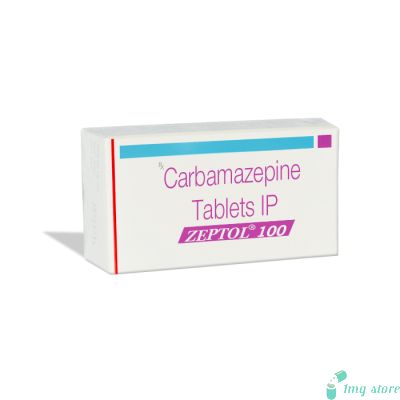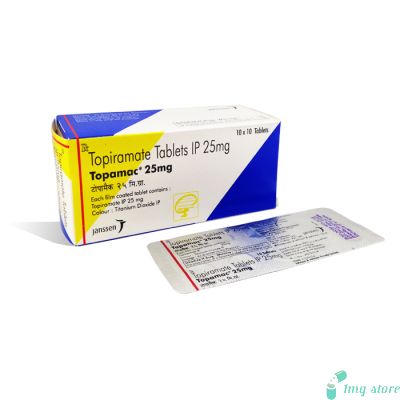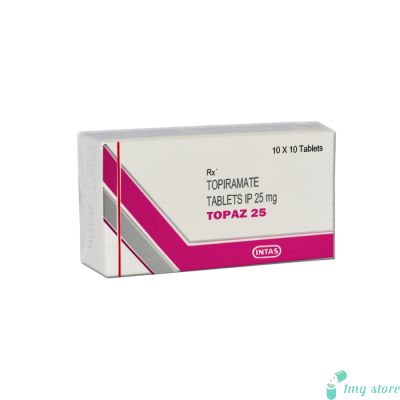Tegretol Tablet (Carbamazepine)
Tegretol Tablet (Carbamazepine) is a medication used to treat epilepsy, specifically in preventing certain types of seizures or fits. It is also prescribed for the management of trigeminal neuralgia, a painful condition affecting the face, head, and neck. Additionally, Tegretol may be recommended for the treatment of diabetic neuropathy, which refers to nerve pain associated with diabetes.
Tegretol Tablet (Carbamazepine) is an Antiepileptic Drug
Tegretol Tablet, also known by its generic name Carbamazepine, is a commonly used medication in the treatment of epilepsy and trigeminal neuralgia. It belongs to the class of antiepileptic drugs and is primarily prescribed to control seizures and alleviate the symptoms associated with trigeminal neuralgia. Carbamazepine works by stabilizing the electrical activity in the brain, which helps prevent abnormal signals that can trigger seizures. In the case of trigeminal neuralgia, it can help reduce the intensity and frequency of facial pain caused by the condition.
As an antiepileptic medication, Tegretol Tablet Carbamazepine is often prescribed as a first-line treatment for various types of seizures, including partial seizures, generalized tonic-clonic seizures, and mixed seizures. It is also effective in the management of certain psychiatric disorders, such as bipolar disorder and schizophrenia. When used for trigeminal neuralgia treatment, Carbamazepine helps alleviate the excruciating facial pain caused by the condition. It works by dampening the nerve signals responsible for transmitting pain sensations along the trigeminal nerve, which is responsible for facial sensation. By reducing these signals, Carbamazepine can provide relief and improve the quality of life for individuals suffering from trigeminal neuralgia.
It is important to note that Carbamazepine may have side effects, and its usage should be closely monitored by a healthcare professional. Common side effects include drowsiness, dizziness, nausea, and skin rashes. Additionally, Carbamazepine may interact with other medications, so it is crucial to inform your healthcare provider about any other medications you are taking. Overall, Tegretol Tablet Carbamazepine is a widely used antiepileptic medication that plays a crucial role in the treatment of epilepsy and trigeminal neuralgia. It helps control seizures and manages the debilitating facial pain associated with trigeminal neuralgia, improving the quality of life for individuals affected by these conditions.
Carbamazepine tablets, commonly prescribed under the brand name Tegretol, have various doses depending on the specific condition being treated. It is essential to follow your doctor's instructions regarding the appropriate dosage for your individual needs. The following information provides a general overview of the doses and benefits of Carbamazepine tablets:
Epilepsy Treatment:
Starting Dose: The usual starting dose for adults is 200-400 milligrams (mg) per day, divided into two or three smaller doses.
Maintenance Dose: The maintenance dose typically ranges from 800-1200 mg per day, divided into smaller doses.
Pediatric Dose: Children may require lower doses based on their weight and age, usually starting with 10-20 mg per kilogram (kg) of body weight per day.
Trigeminal Neuralgia Treatment:
Starting Dose: The initial dose for trigeminal neuralgia is usually 100-200 mg per day, divided into two smaller doses.
Maintenance Dose: The maintenance dose may be increased gradually to a range of 200-1200 mg per day, depending on individual response and tolerance.
The benefits of Carbamazepine tablets include:
Control of Seizures: Carbamazepine is highly effective in preventing and controlling various types of seizures, including partial seizures, generalized tonic-clonic seizures, and mixed seizures. It helps stabilize the electrical activity in the brain, reducing the frequency and intensity of seizures.
Trigeminal Neuralgia Relief: Carbamazepine is one of the primary medications used to treat trigeminal neuralgia. It helps alleviate the intense facial pain caused by the condition by dampening the nerve signals responsible for transmitting pain sensations along the trigeminal nerve.
Bipolar Disorder Management: Carbamazepine is also prescribed as a mood stabilizer in the management of bipolar disorder. It helps control manic episodes and stabilize mood swings associated with the condition.
Psychiatric Disorder Management: In addition to bipolar disorder, Carbamazepine may be used in the treatment of certain psychiatric disorders, such as schizophrenia, to manage symptoms and stabilize mood.
It is important to note that the specific dose and duration of Carbamazepine treatment may vary depending on individual factors and medical history. Always consult your healthcare provider for personalized dosage recommendations and to discuss potential benefits and risks associated with the medication.
When taking Carbamazepine tablets, it is important to keep the following precautions in mind:
- Inform your healthcare provider about your complete medical history, especially if you have a history of liver or kidney problems, heart conditions, blood disorders, or any allergic reactions to medications. It is crucial to provide accurate information to ensure the safe and effective use of Carbamazepine.
- If you have known allergies to Carbamazepine or any other antiepileptic medications, inform your doctor. Allergic reactions to Carbamazepine can range from mild skin rashes to severe reactions. It is important to be cautious and seek medical attention if you experience any signs of an allergic reaction, such as itching, hives, swelling, or difficulty breathing.
- Carbamazepine may affect the production of blood cells in rare cases, leading to blood disorders. Regular blood tests may be required to monitor your blood cell counts during treatment. If you notice any unusual bleeding, bruising, or signs of infection, contact your healthcare provider immediately.
- If you are pregnant, planning to become pregnant, or breastfeeding, discuss the potential risks and benefits of Carbamazepine with your doctor. Carbamazepine may pose risks to the developing fetus or newborn, and alternative treatment options may need to be considered.
- Carbamazepine can cause drowsiness, dizziness, and blurred vision. Avoid driving or operating machinery until you know how the medication affects you. If you experience any of these side effects, avoid activities that require alertness until they subside.
- Alcohol can increase the drowsiness and dizziness caused by Carbamazepine. It is advisable to limit or avoid alcohol while taking this medication.
- Regular check-ups and monitoring of liver function, blood counts, and other relevant parameters may be necessary during Carbamazepine treatment. Follow your healthcare provider's instructions and attend scheduled appointments.
Carbamazepine tablets, also known as Tegretol, have several uses, including:
Treatment of Epilepsy: Carbamazepine is used to control and prevent seizures associated with different types of epilepsy, such as partial seizures, generalized tonic-clonic seizures, and mixed seizures.
Management of Trigeminal Neuralgia: Carbamazepine helps alleviate the intense facial pain caused by trigeminal neuralgia, a condition characterized by sudden, severe facial pain.
Bipolar Disorder: Carbamazepine is prescribed as a mood stabilizer in the management of bipolar disorder, helping to control manic episodes and stabilize mood swings.
Psychiatric Disorders: It can be used in the treatment of certain psychiatric disorders, such as schizophrenia, to manage symptoms and stabilize mood.
Neuropathic Pain: In some cases, Carbamazepine may be prescribed to alleviate neuropathic pain conditions, such as diabetic neuropathy or post-herpetic neuralgia.
It is important to note that this is a brief summary of the uses of Carbamazepine tablets. The medication should only be used under the guidance of a healthcare professional, who will determine the appropriate dosage and duration of treatment based on individual needs and medical history.
Carbamazepine tablets, like any medication, can have potential side effects.
Drowsiness: Carbamazepine can cause drowsiness or sedation, which may impair cognitive function or reaction times.
Dizziness: It can lead to feelings of dizziness or lightheadedness, especially when changing positions.
Nausea and Vomiting: Some individuals may experience nausea or vomiting as a side effect of Carbamazepine.
Skin Reactions: Rashes, itching, or other skin reactions may occur. In rare cases, severe allergic reactions can also occur.
Blood Disorders: Carbamazepine can affect blood cell counts, leading to anemia or other blood disorders in rare instances.
Liver Problems: In rare cases, Carbamazepine can cause liver damage or abnormal liver function tests.
Mood Changes: Some individuals may experience mood changes, including irritability or depression while taking Carbamazepine.
These are not the only possible side effects of Carbamazepine, and some individuals may experience different or additional side effects. It is important to consult a healthcare professional for a comprehensive list of potential side effects and to report any unusual or severe reactions while taking the medication.
Q: Can Carbamazepine tablets be used for the treatment of neuropathic pain?
A: Yes, Carbamazepine is sometimes prescribed for the treatment of neuropathic pain conditions, such as diabetic neuropathy or post-herpetic neuralgia. It can help alleviate nerve-related pain by modulating the electrical signals in the nerves.
Q: Can I consume grapefruit or grapefruit juice while taking Carbamazepine?
A: It is generally advisable to avoid consuming grapefruit or grapefruit juice while taking Carbamazepine. Grapefruit can interfere with the metabolism of the medication, leading to increased levels in the bloodstream and potentially enhancing its side effects. It is recommended to consult your healthcare provider regarding specific dietary restrictions while on Carbamazepine.
Q: Does Carbamazepine cause weight gain?
A: Weight gain is not commonly associated with Carbamazepine use. However, some individuals may experience changes in appetite or fluctuations in weight. It is important to maintain a healthy lifestyle, including a balanced diet and regular exercise, to manage weight effectively while taking Carbamazepine.
Q: Can Carbamazepine be safely used in elderly patients?
A: Carbamazepine can be used in elderly patients, but caution and careful monitoring are necessary. Elderly individuals may be more sensitive to the effects of the medication and may require lower initial doses. Close monitoring for side effects and drug interactions is important in this population.
Q: Can I abruptly stop taking Carbamazepine?
A: No, it is important not to abruptly stop taking Carbamazepine without consulting your healthcare provider. Suddenly discontinuing the medication can increase the risk of seizures or other withdrawal symptoms. The dosage should be gradually reduced under medical supervision when discontinuing Carbamazepine.
Q: Can Carbamazepine affect hormone levels?
A: Carbamazepine can affect hormone levels in some individuals. It may decrease the effectiveness of hormonal contraceptives, such as birth control pills, and alternative methods of contraception should be considered. In some cases, Carbamazepine may also affect hormone levels in the body, potentially leading to menstrual irregularities or hormonal imbalances.
Q: Can Carbamazepine be used in children?
A: Yes, Carbamazepine can be used in children for certain indications, such as epilepsy. The dosage and usage should be determined by a pediatric neurologist or healthcare provider experienced in treating children with antiepileptic medications.
Q: Can Carbamazepine cause liver damage?
A: Although rare, Carbamazepine can potentially cause liver damage. It is essential to monitor liver function regularly during treatment, especially during the first few months. If you experience symptoms such as yellowing of the skin or eyes, dark urine, or abdominal pain, seek medical attention promptly.
Here are some common drug interactions to consider while using Tegretol Tablet (Carbamazepine):
Central Nervous System Depressants: The concomitant use of Carbamazepine with another central nervous system (CNS) depressant drugs, such as benzodiazepines (e.g., diazepam) or opioids (e.g., codeine), may increase the risk of drowsiness, sedation, and respiratory depression. Close monitoring and dosage adjustments may be necessary when combining these medications.
Anticoagulants: Carbamazepine may interact with anticoagulant drugs, such as warfarin, and affect their effectiveness. Regular monitoring of blood clotting parameters is essential when these medications are used together.
Antidepressants: Some antidepressant medications, including selective serotonin reuptake inhibitors (SSRIs) and tricyclic antidepressants (TCAs), may interact with Carbamazepine and increase the risk of serotonin syndrome. Symptoms of serotonin syndrome include agitation, hallucinations, rapid heartbeat, fever, and muscle stiffness. Careful monitoring and dose adjustments may be necessary when combining these medications.
Antipsychotics: Certain antipsychotic medications, such as haloperidol or clozapine, may have interactions with Carbamazepine. These interactions can affect the blood levels of both medications and may require dosage adjustments or close monitoring for potential side effects.
Oral Contraceptives: Carbamazepine can reduce the effectiveness of hormonal contraceptives (birth control pills) by accelerating their metabolism. This can increase the risk of unintended pregnancy. Alternative methods of contraception should be considered or discussed with your healthcare provider.
Other Antiepileptic Drugs: When combining Carbamazepine with other antiepileptic drugs, such as phenytoin or valproic acid, there may be interactions that affect the blood levels and effectiveness of both medications. Regular monitoring and dosage adjustments may be necessary to maintain optimal therapeutic outcomes.
MAO Inhibitors: The combination of Carbamazepine with monoamine oxidase inhibitors (MAOIs), a type of antidepressant, can lead to serious adverse effects, including hypertensive crisis. Avoid combining these medications due to the potential risk.
It is important to note that this is not an exhaustive list of drug interactions, and there may be other medications that can interact with Carbamazepine. Always inform your healthcare provider about all the medications you are taking, including prescription, non-prescription, and herbal supplements, to ensure safe and effective use of Carbamazepine in your neurology treatment.
| Manufacturer | : | Novartis Ltd, India |
| Equivalent Brand | : | Tegretol |
| Generic Search | : | Carbamazepine |














